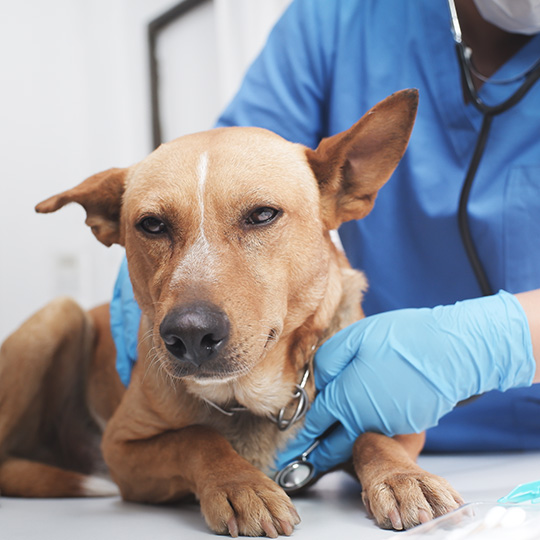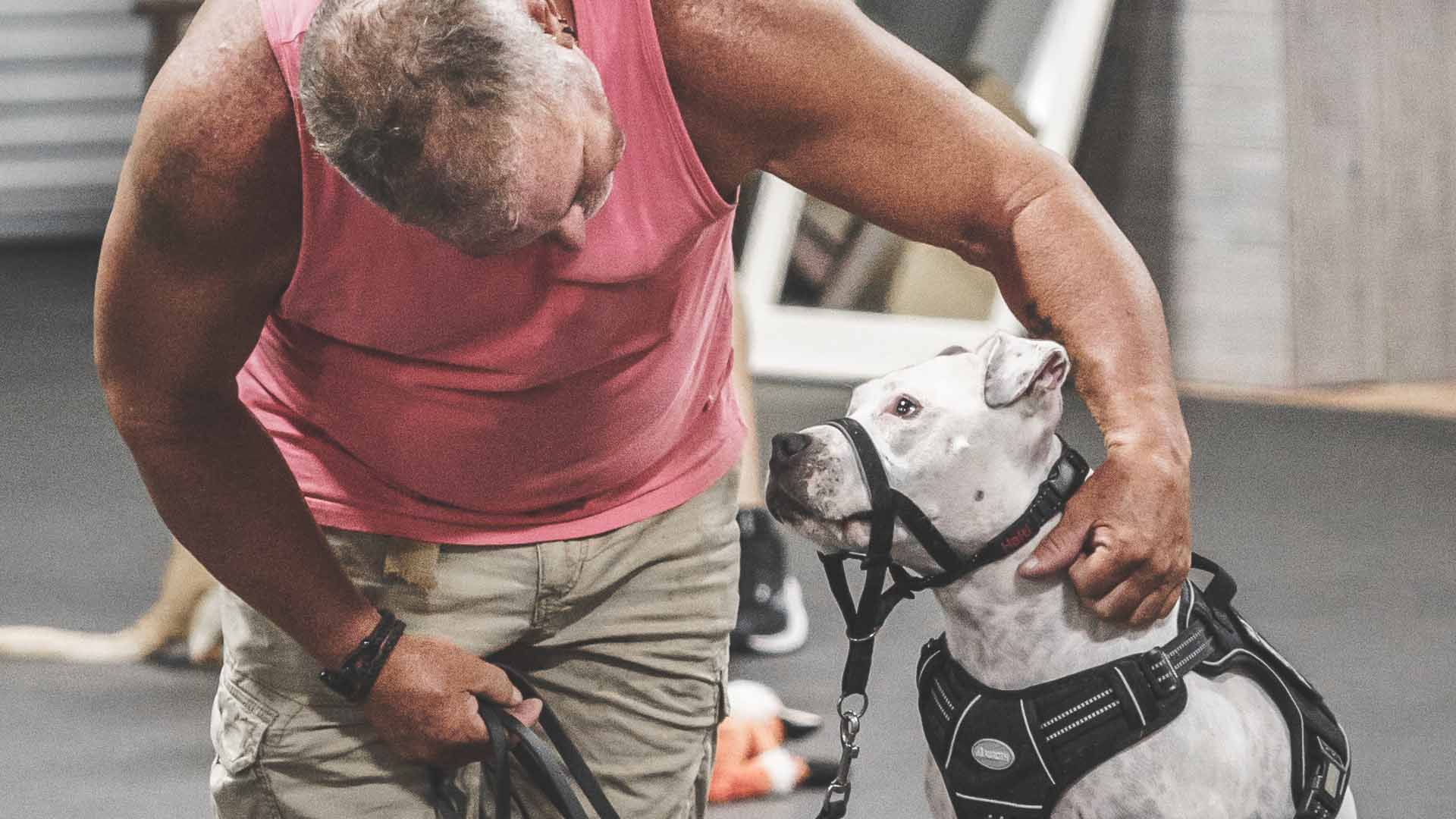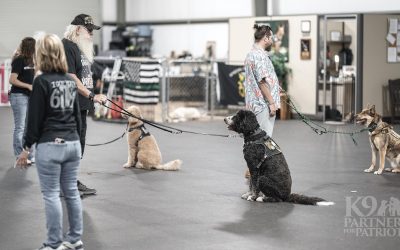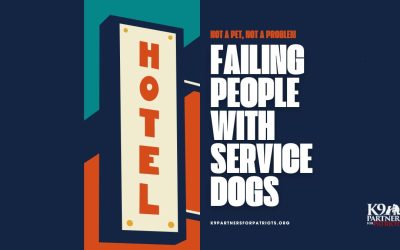INTRO
Ensuring health, focus, and safety for veterans and their canine partners
At K9 Partners for Patriots, we are deeply committed to the well-being of both our veterans and their service dogs. A critical part of that commitment includes requiring every service dog in our program to be spayed or neutered. While it may seem like a simple veterinary decision, this step plays a vital role in ensuring the safety, health, and long-term success of each service dog team.

Why It Matters
Spaying or neutering a service dog is more than a medical procedure. It’s a step that directly impacts the dog’s behavior, health, and ability to serve their veteran partner. This requirement protects the dog, the veteran, and the mission they work so hard to achieve together.
Here’s why spaying or neutering is essential for service dogs — and why this requirement protects the dogs, the veterans who depend on them, and the mission they serve.
Focus and Reliability in Training
Service dogs must remain calm, focused, and responsive in every situation.
• Unaltered dogs experience hormonal changes that can lead to mood swings, restlessness, or aggression, especially during heat cycles or mating seasons.
• These hormonal distractions can break the dog’s concentration during critical tasks, such as helping a veteran through a panic attack or navigating a crowded environment.
A distracted service dog isn’t just inconvenient — it can be dangerous.
Preventing Unwanted Litters and Shelter Overcrowding
Every dog at K9 Partners for Patriots is either a rescue dog or one brought in by a veteran.
Allowing service dogs to remain unaltered risks accidental pregnancies, which can lead to more puppies entering shelters — the very system we rescue our dogs from.
Many of these unplanned litters face uncertain futures, including homelessness or euthanasia.
By spaying or neutering, we break the cycle of unwanted litters and give more dogs a chance at a purposeful life.
Better Health and Longer Lifespan
Spaying and neutering offer significant health benefits:
• Lower risk of cancers such as mammary or testicular tumors
• Reduced risk of life-threatening infections like pyometra
• Fewer hormone-driven behaviors that can lead to injury
These benefits add up to a longer, healthier life for the dog — ensuring the veteran has a dependable partner for many years to come.
Public Access Etiquette and Safety
Service dogs must be trusted to behave impeccably in public settings, from restaurants and stores to airports and hospitals.
Unaltered dogs may display territorial or mating-related behaviors, such as marking, mounting, or vocalizing, which are unacceptable in public spaces.
A dog in heat can also create unpredictable situations with other dogs, potentially causing fights or disruptions.
Spaying or neutering removes these biological triggers, ensuring that service dogs remain calm, professional, and safe companions in any environment.
Compliance with ADA Best Practices
While the Americans with Disabilities Act (ADA) does not specifically require service dogs to be spayed or neutered, most service dog organizations and trainers adhere to this standard.
It aligns with industry best practices for safety, consistency, and professionalism.
Many public facilities, landlords, and insurance providers strongly prefer or require service animals to be altered.
By following these guidelines, we help our veterans avoid unnecessary conflicts or barriers when accessing public spaces with their service dogs.
Our Commitment to Veterans and Their Service Dogs
At K9 Partners for Patriots, our mission is to restore independence to veterans battling PTSD, TBI, and MST through the power of the veteran–service dog bond. Ensuring that every service dog is spayed or neutered is one of the many steps we take to protect this bond, so veterans can focus on what truly matters:
- Building trust
- Gaining confidence
- Learning the skills to thrive together as a team
A healthy, focused, and reliable service dog is more than a companion — they are a lifeline for a veteran on their journey of healing.
CONCLUSION
Requiring service dogs to be spayed or neutered is not just a rule — it’s a reflection of our dedication to safety, health, and mission success.
By taking this vital step, we ensure that every dog in our program can serve with unwavering focus, remain healthy for years to come, and represent the highest standard of service and care. Most importantly, it helps us honor the sacrifice of our veterans by giving them the steadfast partner they deserve.




